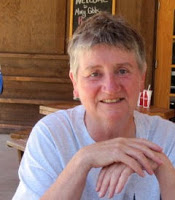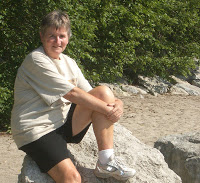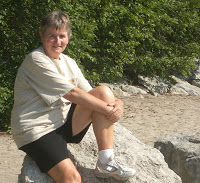eavesdropping are over. Like so many other things, it is obsolete; extinct.
Voices yell intimacies into smartphones, while people’s every thought, word,
and deed, flood from Facebook and Twitter. We have entered an era more of anti-eavesdropping;
of trying not to hear the intimate details of everyone’s life; their
every opinion. Not long after the last Superbowl a friend and I met for lunch.
The business- men at the next table were so raucous in their analysis of the
game that we had to move to another table. Next to that one, two women talked
incessantly, almost as loud as those men, not to each other but into their
phones. Eavesdropping, if you can even use the term, has become obligatory.
being an only child, I loved to eavesdrop. I recall clearly one conversation on
a bus. The young couple in the seat in front of me had a very emotional, if
whispered, argument over whose fault it was that the girl was pregnant. I got
quite an education. The last time I rode a bus, which actually was to get to
Cheesman Park for the start of this year’s Pride Parade, a young guy yelled
abuse into his iPhone the entire trip. Apparently, his girlfriend was pregnant,
and, very apparently, he was displeased. He repeatedly called her a ‘fucking
stupid bitch’, occasionally switching to ‘stupid fucking bitch’, which seemed
to exhaust his vocabulary. I really didn’t want to hear it. I hurriedly shoved
in my earbuds and turned on my iPod. Definitely we are in the
anti-eavesdropping era.
eavesdrop by my parents. They listened constantly to Mother Nature, who never
stops talking. Through them, I learned to relish birdsong, which of course is
eavesdropping. They aren’t singing to me – they sing to each other, or perhaps to
themselves simply for the glory of the welcome light of morning. Mum and Dad
taught me to listen to the whispers of the wind in the trees, or the howling of
it against the window panes, and to know what it meant for tomorrow’s weather.
From my aunt, and later from a wonderful teacher in high school, I learned to
listen to the whispers of the rocks. They also never stop talking, but oh so
quietly. If you can manage to hear them, they tell the amazing history of our
planet, and they tattle-tale on Mother Nature herself. They give away her age.
As far as our planet is concerned, at least, she is middle-aged; half way
between birth and her life-expectancy of nine billion years. The rocks tell us
that dinosaurs once roamed right here, where we sit this Monday afternoon. (Not
exactly here, on the second floor, but you get my drift!)
with old Ma Nature. She’s not as quiet as she used to be. Her whispers became
louder. Over the more recent decades she has begun not only to talk out loud but
even to shout. She knows something. She wants us to know. But we don’t listen.
anti-eavesdropping era.
hear it.
and turn up the music.
desperate. We must hear her. She will be OK, as will the planet, at
least for another five billion or so years, but we must save ourselves.
She tosses tumultuous tornado swarms at us to wake us up, and hurls humongous
hurricanes to get our attention. We ignore her. In 2003 as many as 70,000
deaths in Europe were attributed to record heat. In June last year London hit
it’s highest temperature on record, at 103. TV shots showed train tracks
buckling in the heat. But this July as I tried to watch the tennis at
Wimbledon, (I say ‘tried’ because it was rained out day after day) London was
treated to the wettest month on record. Last year’s heat waves in India,
Pakistan, and parts of South America broke all records. Australia has had to
add new colors to weather maps to accommodate temperatures never experienced
before. Climate craziness.
records to Alaska and parts of the American southwest. Meanwhile we recently
had record rainfall in China, and across this country from Texas to Washington
D.C.
well be silent for all the attention we pay.
forests on every continent. Even as I write this, sitting on the patio, I smell
in the air the smoke from the Boulder County fire. Another fire blazes on
Hayden Pass, Colorado, which they do not expect to contain before October.
screams.
residents of several Polynesian nations banded together in a desperate attempt
to get the world to care about their islands, which were, and of course still
are, disappearing into the Pacific. In their traditional hand-hewn wooden
boats, they temporarily were able to block the mouth of the Australian harbor
from which a huge coal-ship was ready to leave. The coal was destined for the
huge hungry mouths of the Chinese coal-fired energy plants, whose energy goes
to fill the huge hungry mouths of the endless factories producing goods for the
endless huge hungry mouths of the world’s
insatiable consumer appetites. Don’t blame Australia. Don’t blame China.
There’s plenty of guilt to go round. We are all guilty. I still drive my car,
and occasionally I fly on a plane which is exponentially worse for the
environment. Those south-sea islanders get it. It’s in your face down there;
quite literally. When that beautiful blue ocean which once lapped at your feet,
starts to slap you in the face, you get it.
are signed every now and then, after endless wrangling, but always making
agreements for future goals, not demanding big decisive action now. It
all smacks, to me, of the alcoholic who intends to quit drinking once he’s
finished this last bottle of whisky. No! He has to quit now. Poor out
the rest. We are all addicts, hooked on our lifestyles and standards of living.
We need to quit now, not when we’ve smoked that last carton of
cigarettes. If we don’t start hearing Mother Nature’s cries right now,
it will be too late.
bus was not shouting abuse at his girlfriend, but yelling to me; to all the
passengers? ‘Fire! Fire! The bus is on fire. Get out now. Fire! Fire!’
nothing. All the people on the bus do nothing.
headphones, turn up the music and go into anti-eavesdropping mode, breathing in
the billowing smoke.
just insane, suicidal, behavior.
the Author
raised in England. After graduation from college there, I moved to the U.S.
and, having discovered Colorado, never left. I have lived in the Denver-Boulder
area since 1965, working for 30-years at IBM. I married, raised four
stepchildren, then got divorced after finally, in my forties, accepting myself
as a lesbian. I have been with my wonderful partner Betsy for thirty-years.
We have been married since 2013.



